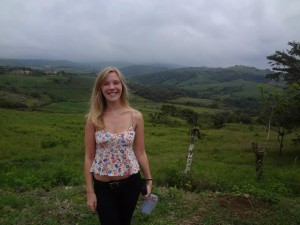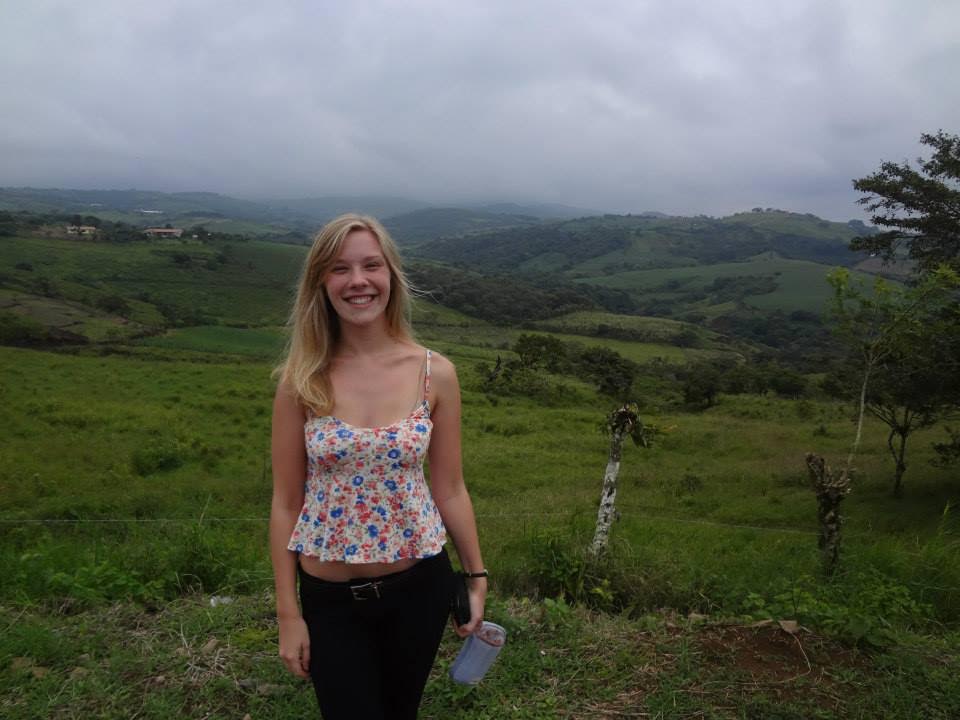by J.T. Buchheit
News Editor
jbuchhei@jccc.edu

The Study Abroad program allows students to take classes all over the world. One student, Angela Sas, attended school in Costa Rica during the last semester.
“I had been studying Spanish for about two years, so I wanted to pick somewhere where they spoke Spanish,” Sas said. “Another big deciding factor was because I had a huge interest in the environment, and I had heard a lot about Costa Rica’s progressive environmental policies.”
When Sas attended class, she noticed several differences in education between the U.S. and Costa Rica. One of the most notable ones was the fact classes only lasted a month instead of an entire semester.
“Each month I would only be in one class, and I would just focus on one class a time,” said Sas. “And I would be in that class from 8 a.m. to noon, which was really cool because I only had to focus on one class and could dive deep into that subject, so that was really nice.”
Sas’ favorite part about studying in Costa Rica was living with her host family, to whom she felt extremely close.
“They were almost like grandparents,” she said. “I don’t have grandparents, so it was really nice to have a connection like that.”
One must adapt to a multitude of changes when traveling to a different country, and with those changes come many unique experiences as well, especially regarding the people and culture of the region.
“I was really surprised about how open and warm everybody was,” she said. “Because I was just an outsider, and for people to be so nice to me when I got there, they just want to share everything with you, and they want to show you all around the town. It’s just really cool that everyone wanted so much to show me how much they loved their country.”
Despite Sas’ delight about the bubbly personalities of the residents of Costa Rica, she did have some trouble trying to connect with other students at her college because she would only be there a short time.
“Making connections with people was hard, because everyone realizes you’re not going to be there for that long,” she said. “So people are kind of guarded when they find out you’re an international student. … It’s kind of hard to get the authenticity you would from someone you meet at home. It wasn’t like that everywhere, but even with my family I could tell that they kind of held back.”
Although Sas had some trouble getting to know other students, she always had her family to console her whenever she was feeling depressed. Her mother figure made sure to provide support whenever it was needed.
“In the first week or two, I had gotten really upset because I hadn’t made any friends yet and I felt really alone, and my parents — we call them ‘tica’ and ‘tico’ in Costa Rica — saw that I was upset, so tica came up to my room and brought me some hot tea and a bunch of chocolate, and it was the best thing, and we just talked for like two hours. It was really nice to feel like I was being so supported.”
Living in Costa Rica was an eye-opening experience for Sas, who gained a better understanding of the cultures of both Costa Rica and the U.S.
“It’s kind of a profound change that happens in you when you’re in another culture and you see how different things can be, and it also helps you get a better perspective of your own culture when you’re not in it anymore. Because I lived in Kansas my entire life, and the farthest I’d gone was Colorado … and being in Costa Rica, I could see what America is like. I could understand my own culture a lot better, which is something I didn’t really expect.”























That is very interesting. It sounds like a wonderful experience.